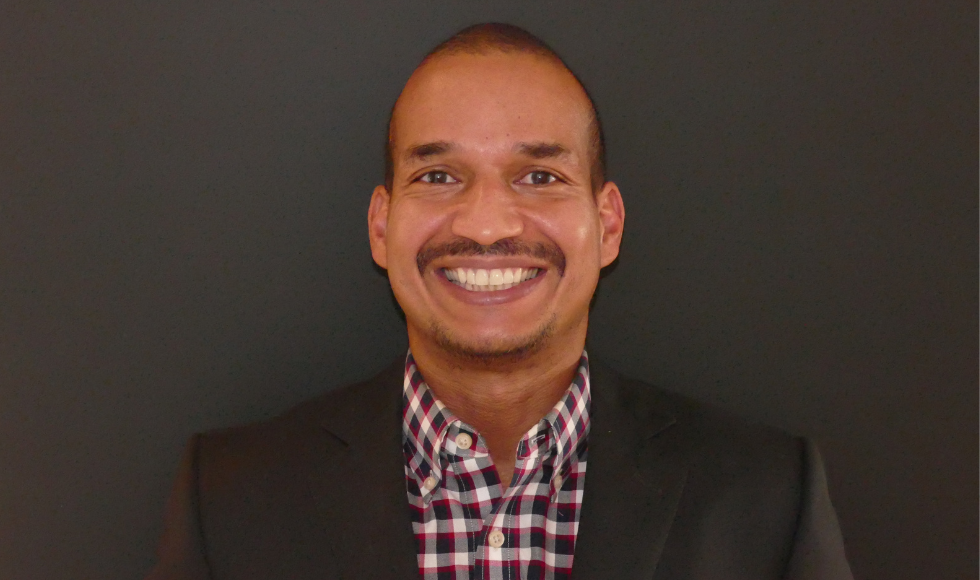Speaking the Language of Directorship

Language has impact. How we word things, the things we don’t say, and how we deliver our message all matter. For Earl Davis — a recent graduate of the Chartered Director Program at DeGroote School of Business’s The Directors College — language has taken on a substantial significance. That’s because the program, Davis says, has given him the ability to truly have his voice heard.
“The program has given me a common language of boards and the process and principles. The impact of that, put together, allows my voice to be heard,” says Davis, the managing director and head of Fixed Income and Money Markets at BMO Global Asset Management. “Because I’m speaking the same language that people are understanding, it allows me to be more impactful.”
Enrolling in the program with 25 years of financial sector experience, Davis’s inspiration in seeking governance education is to influence change for the next generations of Black leaders.
And this means being at the tables where decisions that have a broader impact are made.
All Decisions Have An Impact
To give Davis, and his peers, a holistic skill set that allows them to meet their personal aspirations, the Chartered Director program recognizes the director role’s technical, structural, principle, and behavioural aspects. Through five modules, students learn how governance is defined, rules and practices, characteristics of effective directors and high performing boards, as well as communication strategies.
“This program is especially important today because the focus that’s coming out of it is on the corporation and all stakeholders,” says Davis. “All stakeholders include the environment and includes the social aspect of life. There’s a lot of volatility and turbulence now in regards to the environment, for example. And, all our decisions have an impact so you have to consider them. What the Director program reinforces, and makes explicit, is the consideration of those factors.”
As Davis begins to apply knowledge from the Director program into his own career, he says coming to understand the importance of dialogue can’t be understated. While Davis attended debate class in high school and has had plenty of public speaking experience since, he says the program illustrated how vital it is to not only speak effectively, but also to listen actively, internalize different perspectives, and ask the right questions.
“(In one of my modules, the instructor recommended), ‘Earl, one question. Focus in on one,’” Davis recalls.
“Then, your voice is not lost because you’re asking that one pointed, open-ended question. The importance of questioning and good questions, that’s what a good board member does, right? And I think that’s where it makes a significant difference in my life.”
Representation On Boards
The program is also in alignment with Davis’s aspiration to ensure diversity at tables where decision-making occurs. DeGroote has teamed up with distribution and integrated energy solutions provider Alectra to offer the Alectra Equity, Diversity and Inclusion (ED&I) Scholarship. It offers candidates who self-identify as part of Indigenous or racialized groups (which are underrepresented on corporate boards) the opportunity to attain governance education and certification by completing the Chartered Director Program. Davis is the scholarship’s first recipient.
“If I say 400-metre race, is there anything that comes to mind? It’s staggered starts,” says Davis. “If everyone starts in the same lane, at the same point of a 400-metre race, they’re not all running 400 metres. That’s why they stagger it out, to make it 400 metres for everyone.“And, that’s why the scholarship is important going forward: It helps make it an equal race for everyone, which, right now, it’s not.”
Beyond seeking governance education to help future generations, Davis is also taking action. He is the co-founder of the Black Opportunity Fund. The initiative is seeking to raise a billion-dollar endowment fund. Half of the money will go to advance social causes. The remainder will help to advance entrepreneurship and Black-owned businesses and to provide support and resources.
“If I was born 100 years ago, I would not have the same opportunities I have today,” says Davis. “So, I just want to ensure I could do my part to help continue it generationally. The way I look at it – intelligence, skills, talent – it’s all distributed equally. It doesn’t matter who you are. But the opportunity set isn’t equal. It’s important to me to help to increase the opportunity set for the generations going forward.

